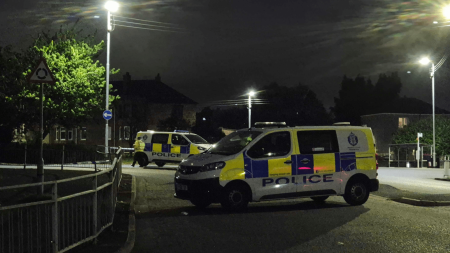The horrific Southport killings, which resulted in the sentencing of Axel Rudakubana to a minimum of 52 years in prison, raised complex questions surrounding the classification of the crime and the powers available to law enforcement during the investigation. Det Chief Insp Jason Pye, the senior officer leading the case, expressed a strong preference for the incident to be treated as a terror attack. This designation, he argued, would have granted investigators significantly expanded authority and time to interrogate Rudakubana, potentially unearthing crucial information and motivations behind the brutal murders. Pye emphasized that there was no tactical advantage for the police in the case not being designated as terrorism and that such a classification would have simply allowed them to perform a more thorough and comprehensive investigation given the magnitude and nature of the crime, which he unequivocally labeled as “mass murder.”
The core difference in approach lies in the legal frameworks governing terrorism investigations versus standard criminal inquiries. Had the Southport killings been deemed a terrorist act, police could have detained and questioned Rudakubana for up to a week, providing ample opportunity to delve into his background, potential connections, and the driving forces behind his actions. However, under standard criminal procedures, the interrogation period is limited to just 72 hours, a constraint that Pye felt significantly hampered their ability to fully understand the complexities of the case. This time limitation placed immense pressure on investigators to gather sufficient evidence within a narrow timeframe, potentially impacting the depth and breadth of their inquiry.
Despite the possession of an al-Qaeda training manual by Rudakubana, prosecutors ultimately decided against pursuing terrorism charges. Their rationale centered on the absence of concrete evidence linking him to a specific extremist ideology. While acknowledging the extreme nature of the violence, prosecutors argued that the mere possession of the manual, without further substantiation of his adherence to extremist beliefs, did not meet the legal threshold for terrorism charges. This decision highlights the intricate legal nuances involved in classifying acts of violence as terrorism, requiring a clear demonstration of ideological motivation and intent beyond the act itself.
The Southport case has spurred renewed debate about the adequacy of existing terrorism laws, particularly in addressing acts of “extreme individualised violence.” Labour Party leader Sir Keir Starmer has pledged to reform legislation to encompass such cases, even in the absence of demonstrable links to established extremist groups or ideologies. Starmer contends that the focus should be on the nature of the violence and its intent to terrorize, arguing that the Southport killings epitomize this type of extreme, individualized violence aimed at instilling fear and terror within the community. This proposed reform seeks to close a perceived gap in the current legal framework, allowing for more effective prosecution of lone actors driven by extremist motivations, even if they don’t align with established terrorist organizations.
The families of the victims in the Southport tragedy have expressed profound grief and anguish, grappling with the devastating loss of their loved ones. Their reactions to Rudakubana’s sentencing have been varied, reflecting the complex emotions associated with such a senseless act of violence. Some have expressed a sense of closure, while others continue to seek answers and a deeper understanding of the motivations that drove Rudakubana to commit such a horrific crime. The long-term impact of this tragedy on the families and the wider community underscores the importance of ongoing support and resources to help them cope with the trauma and rebuild their lives.
The Southport killings serve as a stark reminder of the evolving landscape of violence and the challenges faced by law enforcement in combating both organized terrorism and acts of extreme individual violence. The case has ignited a national conversation about the adequacy of existing laws and the need for potential reforms to address the complexities of lone actor terrorism, ensuring that individuals driven by extremist motivations can be effectively prosecuted, even in the absence of clear affiliations with established terrorist groups. This ongoing debate reflects a broader societal effort to grapple with the evolving nature of threats and to develop effective legal frameworks that protect communities while upholding fundamental principles of justice and due process.











